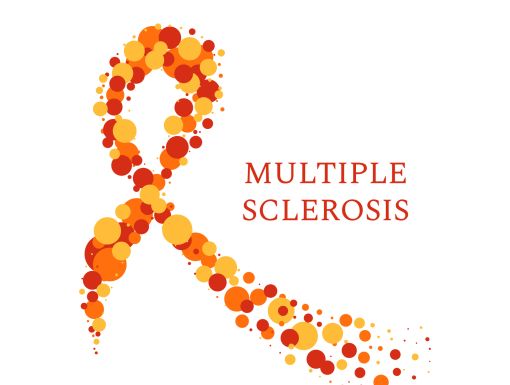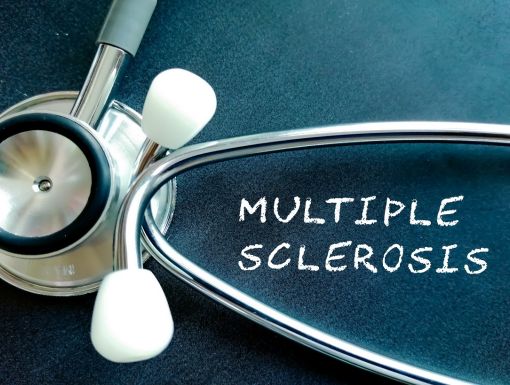
9 Strategies and Practical Tips for Mastering Life with MS
Living with multiple sclerosis (MS), a long-term condition that affects the nervous system, can bring significant challenges to everyday life. I often say that MS symptoms can affect the whole body, “from the top of the head to the tips of the toes and everywhere in between.” Symptoms like extreme tiredness, sensitivity to heat, and memory problems can make even simple daily tasks harder to finish.
Over time, I’ve learned a lot from my MS patients about how they handle these challenges. Here are some helpful tips they’ve shared, which others might find useful for managing everyday struggles.
Heat sensitivity
People with multiple sclerosis (MS) are often sensitive to heat, and warm temperatures can make their symptoms worse. For those living in warmer places, like New Orleans, staying cool is essential, especially in spots that heat up fast, like cars.
Cooling tools like vests or towels can help keep the body cool. You can find these at most sporting goods stores. Battery-powered fans that spray mist and ice packs wrapped in towels are also great options for staying comfortable.
Fatigue
Fatigue is a feeling of extreme tiredness that doesn’t go away, even after rest. It’s the most common symptom of multiple sclerosis (MS), affecting about 80% of people with this condition. For someone with MS, even everyday tasks like grocery shopping can be exhausting.
Many stores now offer online shopping and curbside pick-up to make things easier. If you need to shop alone, ask your doctor to fill out a form from the Department of Motor Vehicles so you can get a handicapped tag or license plate. Don’t forget to use the scooters available at most stores if you don’t have one.
Memory
People with multiple sclerosis (MS) may struggle with short-term memory, multitasking or staying organized. The National Multiple Sclerosis Society says that nearly 60% of people with MS will deal with some memory loss, whether it’s short-term or long-term. Here are a few simple steps you can take to help manage memory challenges:
- It's hard to keep track of all the usernames and passwords for your online accounts. Apps like 1Password or LastPass can help by securely storing all your passwords in one place. They make it easier to stay organized and keep your information safer. Using the same password for multiple accounts can make you more vulnerable to hackers. These apps help by letting you create unique, strong passwords for each site. Plus, they save time by automatically filling in your login details when you visit a website.
- Keeping track of personal items like phones, keys, purses, and wallets can be challenging, but many people find it helpful to keep them in the same spot daily. Creating a routine like this can save you time and reduce the stress of searching for misplaced things. It also makes remembering what you need to do on short notice easier. Another helpful tip is to use sticky notes to leave yourself reminders or important messages.
Preparation
Getting organized before a medical appointment can help you feel more prepared. Write down any questions or notes you want to share with your doctor and add your appointment details to your phone's calendar. To ensure you arrive on time, try setting the appointment in your calendar 15 to 30 minutes earlier than the actual time. This small step can reduce stress and help things go smoothly.
Patients with MS can benefit greatly from medical apps and software provided by their healthcare teams. These tools make it easy to access lab results, radiology reports, and notes from office visits online. At Ochsner, patients can use MyOchsner, an app that lets them talk directly with medical staff, set up appointments, view test results, and check their complete medical history in one convenient place.
Home safety
Living with MS can sometimes cause vision problems, which may increase the risk of falling. To make your home safer, secure rugs to the floor with tape or Velcro, and add corner protectors to furniture with sharp edges. Getting a non-slip bathmat to place outside your tub or shower is also a good idea. Lastly, keep your hallways and bathrooms well-lit at night to help prevent accidents.
Loss of fine motor coordination
People with MS who have weakness in their hands or numbness in their fingers may find it hard to pick up small items, write, type or text. Luckily, many products can help. Items like a jewelry helper kit, easy-to-reach grabber tools and kitchen utensils with rubber handles can make fine motor tasks easier. Adjusting your phone’s font size can also make texting less of a challenge.
Other tools that simplify daily life include rollator walkers with seats (great for sitting or carrying things), grab bars for the shower or bath, raised toilet seats, shower chairs, shoe helpers, and lift chairs. These items are just a few examples, and the options are endless.
Making small changes can also go a long way. For example, creating routines or writing notes to yourself can save time and reduce the stress of forgetting things. Finding the right mix of tools, technology, and habits that work best for you is key.
Here are three more tips for managing life with MS that I often share with my patients:
- Establish boundaries and keep them. Taking care of yourself is not selfish; it's necessary, especially when living with MS. Saying no to others can be challenging, but it's important to prioritize your health and energy. For example, if you're feeling fatigued and someone invites you to an event, it's okay to politely decline or suggest another time when you feel more up to it. Setting clear boundaries helps you conserve energy and focus on what's most important for your well-being.
- Ask for help when needed. Most people in your life genuinely want to support you but might not know how. Don't hesitate to express your needs and guide them. For instance, if carrying groceries or cleaning the house feels overwhelming, ask a friend or family member to step in. Be specific about how they can help, like running errands, making a meal, or walking your dog. You'll find that many people are happy to lend a hand when they know how to assist.
- Be flexible in your routines. MS symptoms can be unpredictable, and adapting is key to maintaining a good quality of life. If fatigue or weakness disrupts your plans, don't get discouraged. Adjust your activities to match how you're feeling. For example, if cooking dinner and standing up feels too hard one day, try preparing a simple meal while sitting. Being open to changing your approach helps you stay on track and maintain a sense of control, even when challenges arise.
Comprehensive and customized care to help you manage MS symptoms. Learn more about the Ochsner Multiple Sclerosis Center.


